Renovating
How to Choose a Plumber
Installing a new bathroom or struggling with a leaky kitchen tap? Here’s how to hire a pipework professional
Whether it’s fitting a brand-new bathroom or kitchen, connecting a washing machine or clearing a dreaded toilet blockage, most of us will need to call on the services of a plumber at some point. So how do you choose the right professional for the job? We asked three experts for their take on hiring the perfect plumber.
Professional advice from: James Lentaigne of Drummonds Bathrooms; Sara Levy of Sara Levy Designs; Cat Hoad of Absolute Project Management
Also in this series: How to Choose a Cabinet-maker l How to Choose an Interior Designer l How to Choose a Tiler l How to Choose an Architect l How to Choose an Electrician l How to Choose a Kitchen Designer
Professional advice from: James Lentaigne of Drummonds Bathrooms; Sara Levy of Sara Levy Designs; Cat Hoad of Absolute Project Management
Also in this series: How to Choose a Cabinet-maker l How to Choose an Interior Designer l How to Choose a Tiler l How to Choose an Architect l How to Choose an Electrician l How to Choose a Kitchen Designer
On the topic of larger renovation projects, Sara Levy adds, “A good plumber needs to be thinking a few steps ahead of the job. They need to understand the existing system, what to look for, and how you can change the layout, as well as what your designer is trying to fit in and how to prepare plumbing accordingly, so it all works cohesively and pipes are hidden.”
Read reviews of plumbers in your area and contact them easily through Houzz.
Read reviews of plumbers in your area and contact them easily through Houzz.
What should you ask a prospective plumber?
“Find out what sorts of projects they usually work on – for example, full bathroom renovations, gas servicing and so on,” Cat says.
You should also discuss any guarantees they offer, and whether anything in their quote is provisional – they may, for example, have a proviso that the quote assumes existing pipework is useable. Also ask for their expertise on water-saving measures and grey-water systems, Cat advises.
“Find out what sorts of projects they usually work on – for example, full bathroom renovations, gas servicing and so on,” Cat says.
You should also discuss any guarantees they offer, and whether anything in their quote is provisional – they may, for example, have a proviso that the quote assumes existing pipework is useable. Also ask for their expertise on water-saving measures and grey-water systems, Cat advises.
Check if they understand your water pressure situation, Sara suggests. “Certain taps and valves require a minimum pressure, so if yours is not strong, you’ll need to be careful what you choose,” she says. “The plumber should be able to advise if you require a pump in your shower.”
Similarly, she adds, ensure your plumber will factor in access, so as to avoid having to cut into a tiled wall or the ceiling below to reach pipework in the future.
Get a sense of their awareness of the latest innovations, James says. “[Ask] which boilers perform better and are higher rated, planning your build to be future-proof and perhaps [factoring in] a transition from gas in the not-so-distant future.”
Similarly, she adds, ensure your plumber will factor in access, so as to avoid having to cut into a tiled wall or the ceiling below to reach pipework in the future.
Get a sense of their awareness of the latest innovations, James says. “[Ask] which boilers perform better and are higher rated, planning your build to be future-proof and perhaps [factoring in] a transition from gas in the not-so-distant future.”
Are all plumbers the same?
Different plumbers may have different specialist areas.
Ask if they’re Gas Safe registered, James advises. This means they’re heating engineers legally approved to work with gas and can install boilers. Do, however – diplomatically – ask to see their Gas Safe ID card, too, as not all engineers can work with all types of gas appliances or carry out all types of gas work.
A plumber may also have certain rooms they’re more used to working in. “I would definitely recommend finding a plumber experienced in working in bathrooms [if that’s the job],” James says. “These are often a small space and need to be considered thoughtfully.”
More: How to Choose an Electrician
Different plumbers may have different specialist areas.
Ask if they’re Gas Safe registered, James advises. This means they’re heating engineers legally approved to work with gas and can install boilers. Do, however – diplomatically – ask to see their Gas Safe ID card, too, as not all engineers can work with all types of gas appliances or carry out all types of gas work.
A plumber may also have certain rooms they’re more used to working in. “I would definitely recommend finding a plumber experienced in working in bathrooms [if that’s the job],” James says. “These are often a small space and need to be considered thoughtfully.”
More: How to Choose an Electrician
Do you need a plumber who understands design?
Plumbers are not designers, but it may be worth sounding out yours about design-related issues if you’re having a refurb or extension plumbed in.
“They may have great product advice about brands they’ve worked with and advice on what can work in a space and what can’t,” James says. “For example, [they could advise on] where access points should be in the bathroom for easy maintenance and whether a brand is good quality or not.”
Sara adds that a bathroom designer needs to work with the plumber to ensure any proposed layout is workable. “The main issue is the waste pipe – and where it connects – to see if you can move it,” she says. “Sometimes, moving the toilet can make a huge difference to a layout, but you must know whether it’s feasible.”
Plumbers are not designers, but it may be worth sounding out yours about design-related issues if you’re having a refurb or extension plumbed in.
“They may have great product advice about brands they’ve worked with and advice on what can work in a space and what can’t,” James says. “For example, [they could advise on] where access points should be in the bathroom for easy maintenance and whether a brand is good quality or not.”
Sara adds that a bathroom designer needs to work with the plumber to ensure any proposed layout is workable. “The main issue is the waste pipe – and where it connects – to see if you can move it,” she says. “Sometimes, moving the toilet can make a huge difference to a layout, but you must know whether it’s feasible.”
Sara lists a few more design questions you may need to discuss – and get good advice on – with your plumber. “Are taps wall-mounted or deck-mounted on the basin and bath? Can you fit the pipes or valve in the wall or do they have to be exposed? If it’s a freestanding bath, do you have to hide pipes in the floor or wall or will they be exposed and need to look perfect? Will the shower head be in the ceiling or on the wall?” she says.
More: How Easy Would It Be to Change My Bathroom Layout?
Tell us…
Have you recently hired a plumber? What kinds of problems did they help to resolve? Share your experience in the Comments.
Tell us…
Have you recently hired a plumber? What kinds of problems did they help to resolve? Share your experience in the Comments.




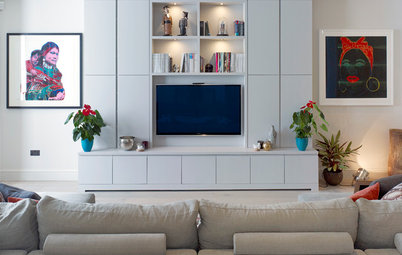
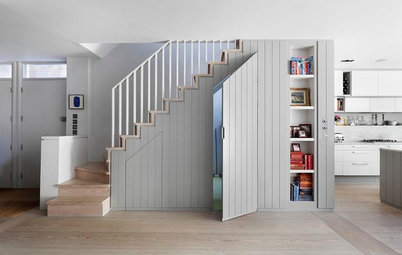
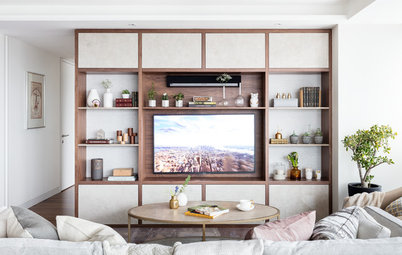
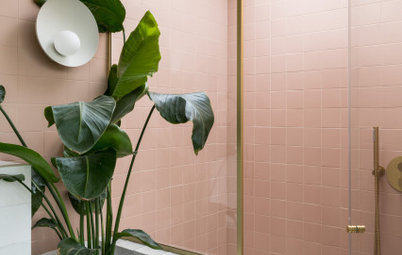
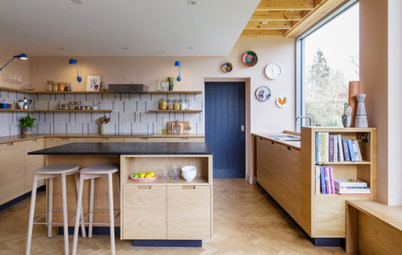
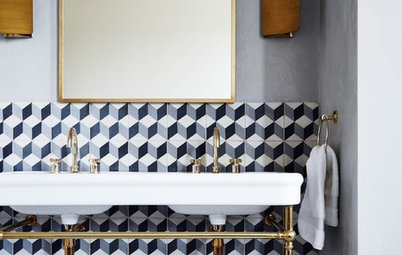
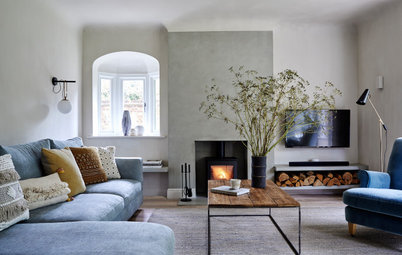
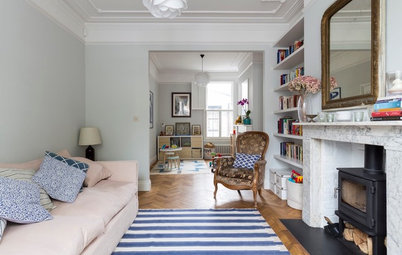
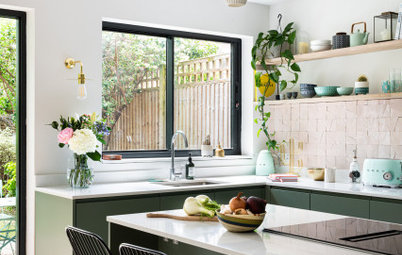
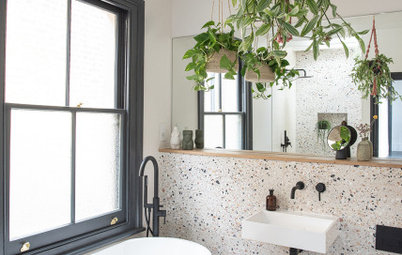
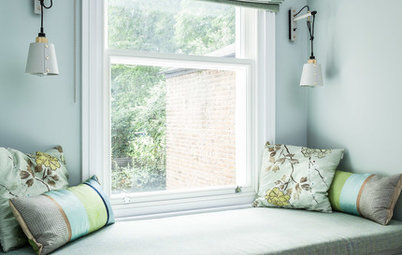
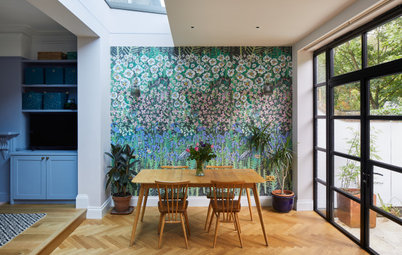
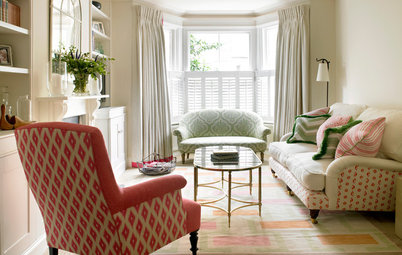
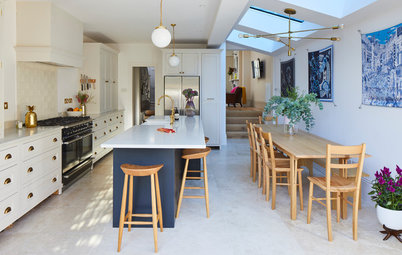
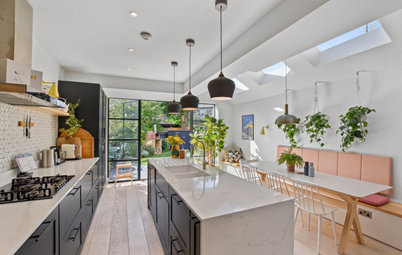

“A good plumber will listen to what you ask for, will plan ahead, and can make helpful suggestions – but will follow your suggestions even if they don’t like them, as long as they aren’t ‘wrong’ from a plumbing point of view,” Cat Hoad explains. She says they should also be open to working with new technology and collaborate well with other tradespeople.
“A good plumber plans and researches,” James Lentaigne agrees, “so when they do their work, from a simple fix to a complete build, they are set up correctly.”
That said, James adds that it can be hard to ascertain whether someone is a good plumber and that the work has to be done both ways. “The customer needs to ask key questions – how much pressure does this tap require, how much heat does this room need, or how much heat does this radiator produce?” This will give you a sense of whether your potential plumber is equipped for the job.